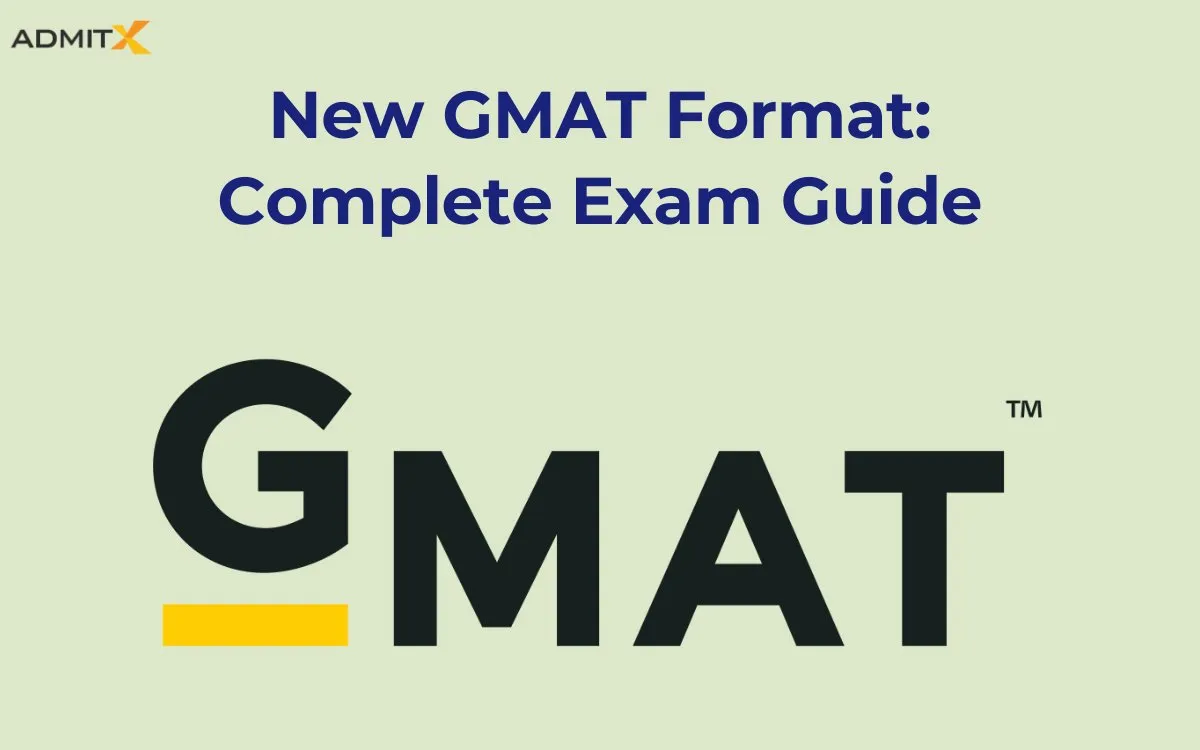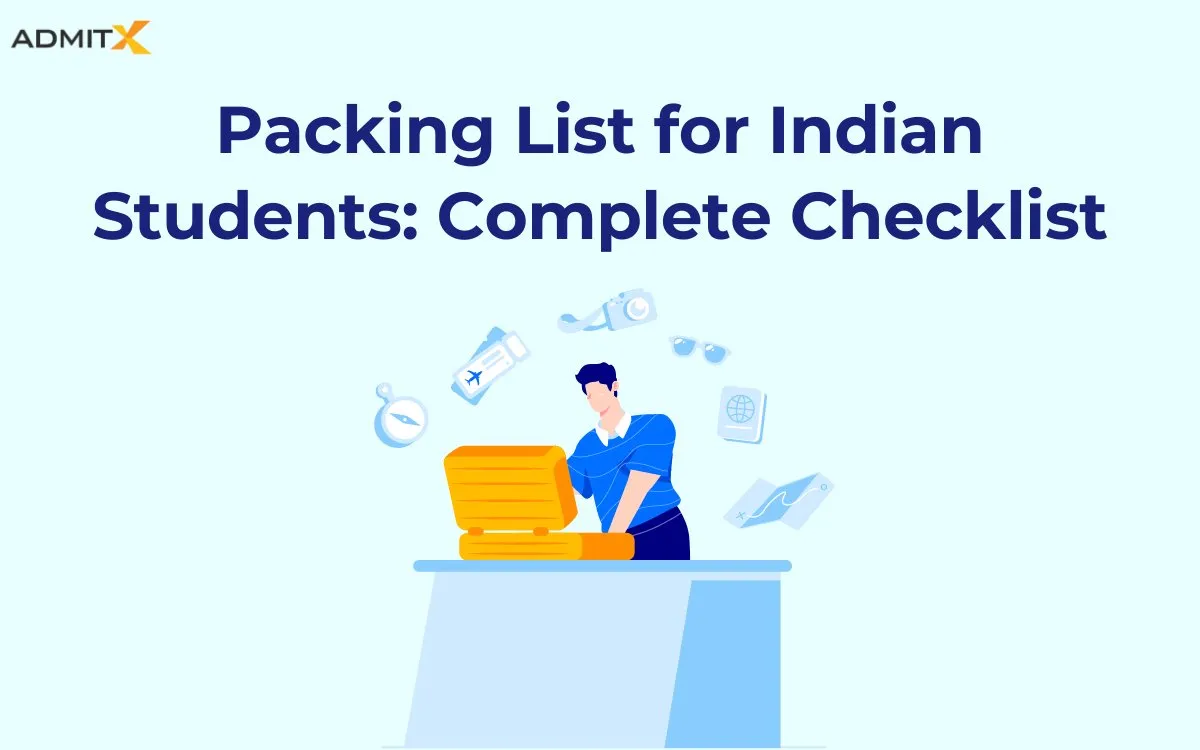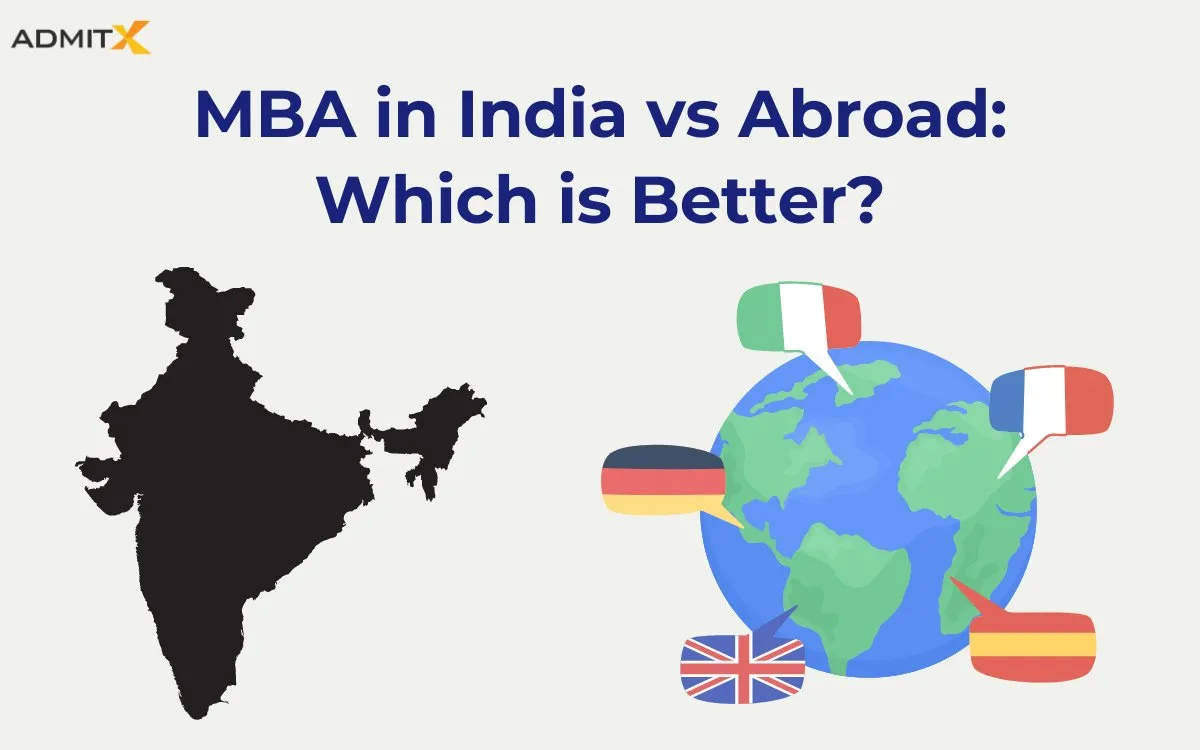The process of studying abroad is heavily reliant on entrance exams. They act as a vital filter that enables universities and colleges to choose the most skilled and eligible applicants for their programs.
These tests evaluate a student’s knowledge, abilities, and aptitude, indicating how well-prepared they are for academic work.
Table of Contents
Why are entrance exams important for studying abroad?
In this blog, we will explore entrance exams for students who wish to study abroad to ensure they are well-versed in the subject. These entrance exams ensure that students can handle the courses and actively contribute to the learning environment; they assist institutions in determining if applicants match the academic prerequisites required for their programs.
Furthermore, entrance tests offer a uniform assessment that enables colleges to compare candidates with different educational backgrounds.
Entrance exams level the playing field and allow institutions to evaluate candidates using a uniform standard because grading systems and curriculum formats differ between nations.
Here are the top 5 entrance exams to attempt
- TOEFL
- IELTS
- GRE
- SAT
- GMAT
1. TOEFL
A well-known English language competence test for admission to English-speaking colleges and universities is the Test of English as a Foreign Language (TOEFL).
A summary of the TOEFL’s various components is provided below:
What is TOEFL?
TOEFL is designed to evaluate an individual’s ability to use and understand English in an academic context, specifically for higher education.
It assesses 4 language components:
- Reading: Capability to understand and analyse complex academic texts.
- Listening: Evaluates the ability to comprehend spoken English in academic settings, such as lectures and discussions.
- Speaking: Assesses the ability to express ideas verbally and coherently in English. Test takers respond to speaking prompts.
- Writing: The ability to write well-structured essays in response to academic prompts.
Eligibility Requirements:
- TOEFL is open to non-native English speakers who must demonstrate their English proficiency for academic or professional purposes.
- Eligibility requirements and age restrictions are not strictly enforced.
- International university applicants, professionals looking for work, and people asking for visas frequently take the test.
Test Format:
Test offers two formats: the TOEFL iBT (Internet-based Test) & the TOEFL ITP (Paper-based Test).
TOEFL iBT is the more commonly administered version and is widely accepted. The test lasts around 4 hours.
- Reading: 35 minutes (20 questions)
- Listening: 36 minutes (28 questions)
- Writing: 29 minutes (2 tasks)
- Speaking: 16 minutes (4 tasks)
TOEFL ITP Sections Level 1
- Listening Comprehension: 35 minutes
- Structure and Written Expression: 25 minutes
- Reading Comprehension: 55 minutes
- Total: 115 minutes
TOEFL ITP Sections Level 2
- Listening Comprehension: 22 minutes
- Reading Comprehension: 31 minutes
- Structure and Written Expression: 17 minutes
- Total: 70 minutes
Scoring:
TOEFL scores range from 0 to 120 for the TOEFL iBT, with separate scores for each section (0-30). The TOEFL ITP has a different scoring scale. Institutions may have their minimum score requirements for admission.
Preparation:
Use study materials, guidebooks, online courses, and practice tests to prepare for the TOEFL. There are also official TOEFL preparation materials available.
Registration and Fees:
Individuals can visit the official ETS (Educational Testing Service) website. Registration fees for Indian students are INR 16,700.
Validity:
Scores are typically valid for 2 years from the test date, although some institutions may have specific policies regarding score validity.
Acceptance:
TOEFL scores are widely accepted by universities and colleges worldwide, especially in English-speaking countries like the United States, Canada, the United Kingdom, Australia, and New Zealand. Many institutions have minimum TOEFL score requirements for admission.
Also read: 10 practical tips to boost your TOEFL score
2. IELTS
The International English Language Testing System (IELTS) is a well-known test of English language proficiency. It is intended to evaluate the language skills of people who wish to immigrate, work, or study in English-speaking nations.
IELTS measures a candidate’s listening, reading, writing, & speaking skills in English.
Eligibility Requirement:
- There are no strict criteria for eligibility for IELTS; it is available to people of all ages and backgrounds.
- No restriction on who can take the exam.
- It’s essential to remember that universities and colleges in English-speaking nations frequently require the IELTS exam, so applicants should review the exact requirements of the organisations they are applying to.
Types of IELTS:
There are two main types of IELTS exams:
- IELTS Academic: This version is intended for individuals who plan to study in an English-speaking country at the undergraduate or postgraduate level. It assesses academic language skills and is widely accepted by universities and colleges.
Test Format
- Listening: 30 minutes (40 questions)
- Reading: 60 minutes (40 questions)
- Speaking: 11-14 minutes (3 parts)
- Writing: 60 minutes (2 questions)
- IELTS General Training: This version suits candidates seeking employment opportunities or planning to immigrate to English-speaking countries. It focuses on everyday language skills used in work and social settings.
Test Format
- Listening: 30 minutes (40 questions)
- Reading: 60 minutes (40 questions)
- Writing: 60 minutes (2 questions)
- Speaking: 11-14 minutes (3 parts)
Scoring:
IELTS scores are reported on a scale from 0 to 9, known as the “band score.” Each section (listening, reading, writing, and speaking) is scored individually, and the overall band score is an average of these scores.
Different institutions and organisations may have specific score requirements, so candidates should check the conditions of their intended destinations.
Preparation:
Candidate preparation for the IELTS exam can be aided by a variety of resources, such as:
- Official IELTS study aids, including books and practice exams.
- IELTS prep language schools or internet resources provide IELTS prep class tests, sample questions, and other resources for independent study.
- employing a tutor or language coach to provide individualised instruction and feedback.
Registration & Fees:
IELTS exams are typically offered all year long at accredited test centres. Candidates can sign up for the exam at a nearby test centre or on the official IELTS website. The fee for Indian students is INR 16,250.
Validity:
Scores are typically valid for two years from the test date. After this period, the institutions or organisations may not accept the scores, so candidates should plan their applications accordingly.
3. GRE
The Graduate Record Examination (GRE) is a standardised test commonly required for admission to graduate and business school programs worldwide.
It assesses a student’s verbal reasoning, quantitative reasoning, critical thinking, and analytical writing skills.
Here’s a more detailed overview of the GRE:
Types of GRE
- GRE General Test
The new version of the GRE general test will be less than 2 hours compared to the previous version of 3 hours 45 mins.
Test format:
- Analytical Writing: 30 minutes (2 questions)
- Quantitative Reasoning: 47 minutes (2 sections, 27 questions)
- Verbal Reasoning: 41 minutes (2 sections, 27 questions)
- GRE Subject Test
The format of the GRE Subject Tests will be computer-delivered. Total testing duration for the mathematics test is two hours and fifty minutes, while the time for the physics and psychology tests is two hours.
Test Format:
- Maths (MCQs)
- Physics (MCQs)
- Psychology (MCQs)
Scoring:
The GRE is scored on a scale of 130 to 170 for both the Verbal and Quantitative sections in one-point increments. Analytical Writing section is scored on a scale of 0 to 6 in half-point increments.
Eligibility:
There are no specific eligibility criteria for taking the GRE. It is typically handled by individuals planning to apply to graduate or business school programs.
However, you should check the specific admission requirements of the institutions you’re interested in, as they may have their criteria.
Course material:
- Official GRE Materials: Educational Testing Service (ETS), the organisation that administers the GRE, offers official GRE test prep materials, including practice tests, guides, and sample questions.
- Test Prep Courses: Many test prep companies, both online and in-person, offer GRE preparation courses. These courses often include live or recorded lectures, practice tests, and study materials.
- Books: Numerous GRE prep books are available in bookstores and online. Popular options include books by Kaplan, The Princeton Review, and Barron’s.
- Online Resources: Several websites and apps provide free or paid GRE prep resources, including practice questions, flashcards, and study guides.
Registration and Test Fees:
You can register for the GRE through the official ETS website. The test fee for Indian students is INR 22,550.
4. SAT
The Scholastic Assessment Test, or SAT, is a standardised test frequently used in the United States and certain other nations for college admissions. It is intended to evaluate a student’s college preparation and give universities a standard measurement to compare applications.
Here’s more detailed information about the SAT:
Test Format:
The SAT consists of three main sections:
- Evidence-Based Reading and Writing (EBRW)
- Maths
- An optional Essay.
The EBRW section includes Reading Writing & Language components, while the Math section covers various maths topics, including algebra, geometry, and trigonometry.
Scoring:
Each section is scored on a scale of 200 to 800 points, with the total SAT score ranging from 400 to 1600. The Essay is scored separately on a scale of 6 to 24 points.
Test Duration:
The SAT (without the Essay) takes 3 hours and an additional 50 minutes with the Essay.
Frequency:
Is typically offered seven times a year in the United States, and internationally it is offered four times a year.
Eligibility:
- High school students primarily take the SAT in their junior or senior years as part of the college admissions process.
- There are no strict eligibility requirements, but students should register for the SAT well before their intended test date.
Courses & Prep:
- Many students choose to prepare for the SAT by taking preparatory courses, using study guides, or enrolling in online SAT prep programs.
- Various organisations and test prep companies offer SAT courses, which can be in-person or online.
- Official SAT practice materials, including sample questions and full-length practice tests, are available for free on the College Board website, which administers the SAT.
Cost:
- The cost of taking the SAT, including a registration fee, depending on whether you take the test with or without the optional Essay, is INR 8536.53.
- Fee waivers are available for eligible low-income students to cover the SAT’s cost
5. GMAT
A standardized test called the Graduate Management Admission Test (GMAT) determines if applicants are qualified to enter MBA (Master of Business Administration) schools and other graduate-level management and business programs.
To read about the GMAT, its explanation, qualifying requirements, training options, and other pertinent details, refer to the GMAT vs GMAT focus edition blog.
Conclusion
Therefore, Language proficiency is frequently tested on entrance examinations, such as the TOEFL or IELTS for English. This is crucial because participating in class discussions, finishing assignments, and understanding the course materials while studying abroad often require fluency in the language of instruction.
In summary, entrance exams are crucial for studying abroad as they help universities identify well-prepared candidates, standardise the evaluation process, assess language proficiency, and provide opportunities for financial support. They serve as a vital step in ensuring students can excel in their chosen academic pursuits while studying in a foreign country.
Henceforth, if you are an aspirant looking to study at your dream university, book an appointment with AdmitX today and start your applications early to avail yourself of all the benefits.




